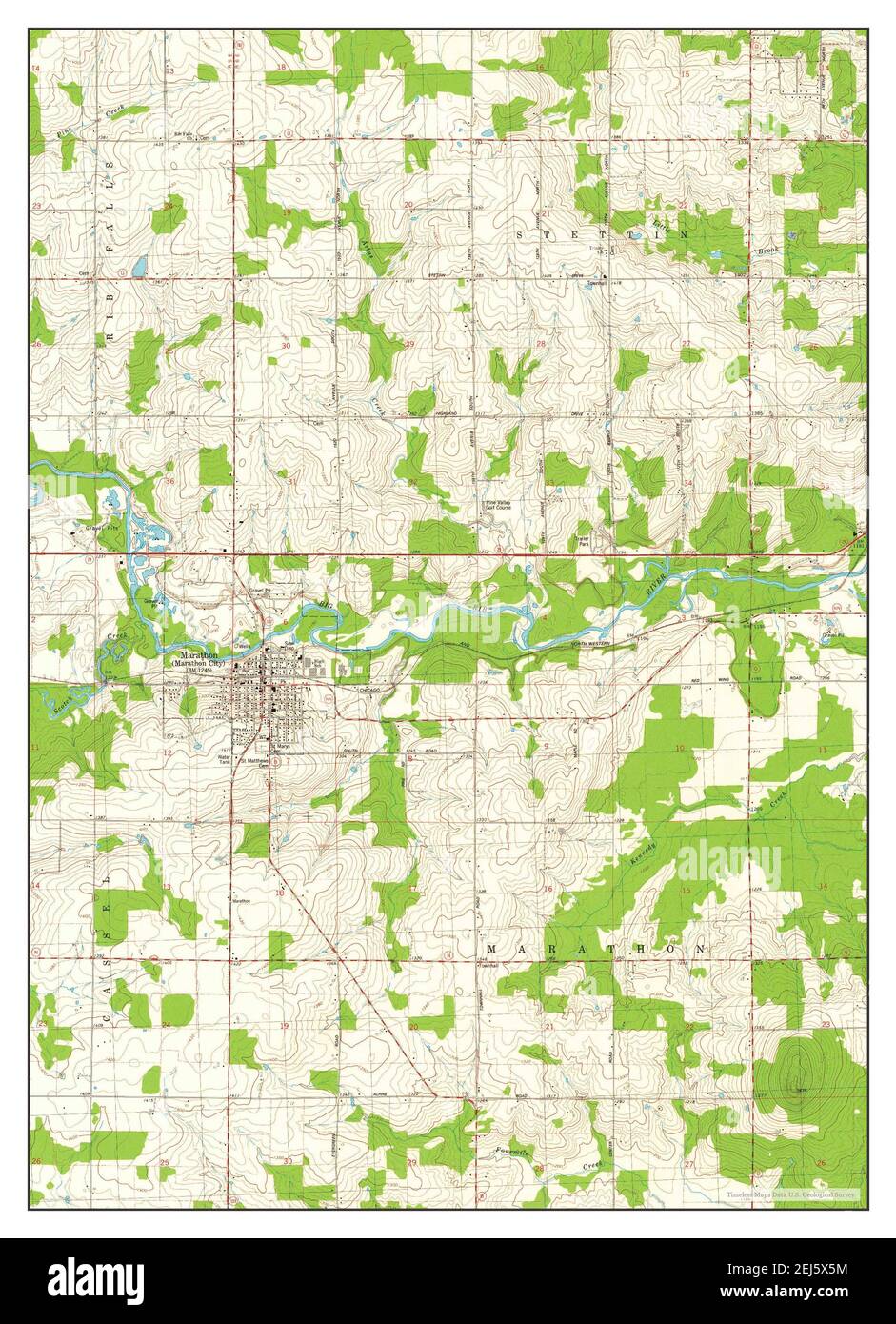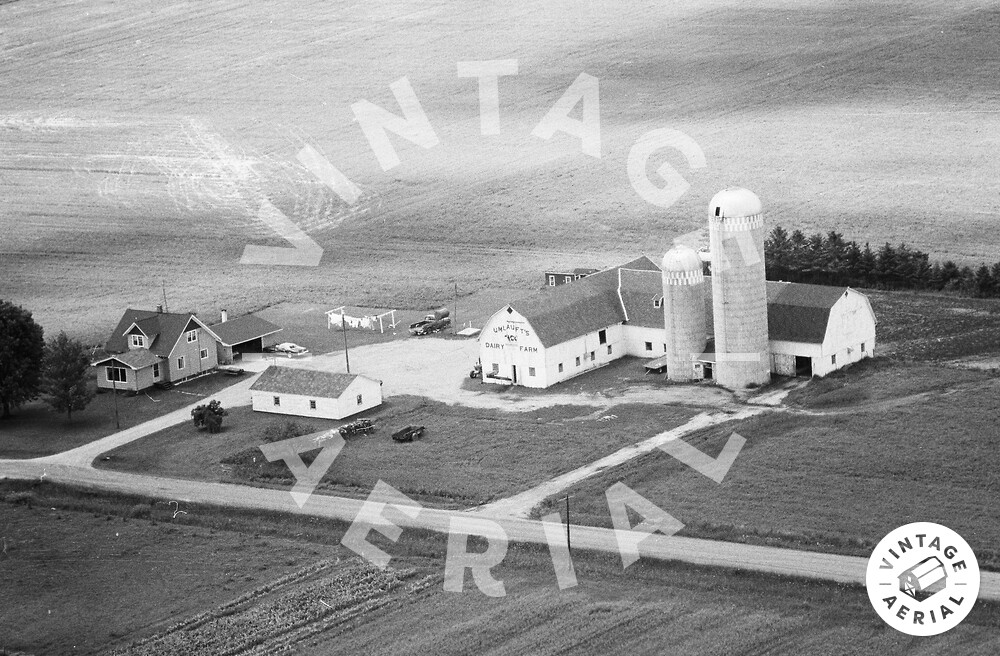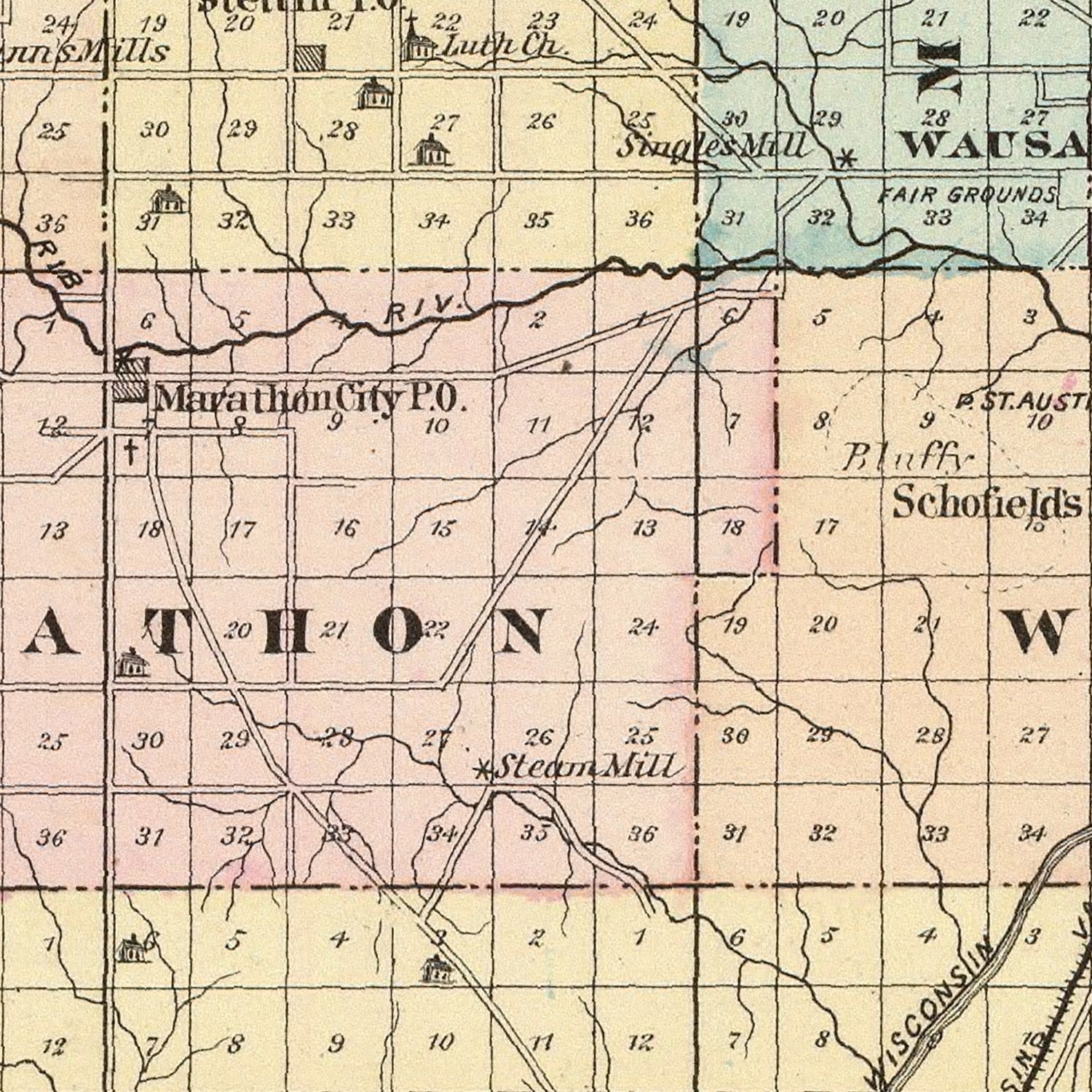Marathon County, Wisconsin: A Geographic Portrait
Marathon County, Wisconsin: A Geographic Portrait
Related Articles: Marathon County, Wisconsin: A Geographic Portrait
Introduction
With enthusiasm, let’s navigate through the intriguing topic related to Marathon County, Wisconsin: A Geographic Portrait. Let’s weave interesting information and offer fresh perspectives to the readers.
Table of Content
Marathon County, Wisconsin: A Geographic Portrait

Marathon County, nestled in the heart of Wisconsin, is a captivating tapestry of natural beauty, vibrant communities, and rich historical heritage. Its diverse landscape, from rolling hills to sparkling lakes, offers a compelling blend of urban and rural living. This article delves into the county’s geography, highlighting its unique features, exploring its economic significance, and underscoring its cultural contributions to the state.
A Geographic Overview
Marathon County, encompassing approximately 1,046 square miles, lies in central Wisconsin, bordered by seven other counties. Its geographic coordinates are 44°48′N 89°37′W. The county’s topography is characterized by the Wisconsin River Valley, which bisects the region, creating a natural divide between its northern and southern portions. The northern portion, known as the "Northwoods," is dominated by rolling hills and dense forests, while the southern portion features fertile farmlands and a more open landscape.
Key Geographical Features
Several notable geographical features contribute to the character of Marathon County. The Wisconsin River, a major tributary of the Mississippi River, flows through the county, providing recreational opportunities and serving as a vital transportation route. The Rib Mountain, a prominent hill rising 1,928 feet above sea level, offers panoramic views of the surrounding landscape and is a popular destination for hikers and outdoor enthusiasts.
Several lakes and rivers dot the county, including the Eau Claire River, the Big Eau Claire River, and the Lake of the Pines, offering opportunities for fishing, boating, and swimming. The Rib Mountain State Park, encompassing over 2,000 acres, features diverse ecosystems, hiking trails, and a scenic overlook.
Population and Demographics
Marathon County is home to a diverse population of approximately 136,000 residents, with the majority residing in the city of Wausau, the county seat. The county’s population has grown steadily over the past few decades, reflecting its economic vitality and attractive lifestyle. The demographic makeup of Marathon County is predominantly white, with a growing Hispanic population and a significant number of Native Americans.
Economic Landscape
Marathon County’s economy is diverse, with a strong focus on manufacturing, agriculture, and tourism. The county is a major producer of paper products, food processing, and machinery. Agriculture plays a significant role, with dairy farming being a major industry. The county also boasts a thriving tourism sector, attracting visitors to its natural beauty, historical sites, and cultural attractions.
Cultural Heritage
Marathon County is steeped in history and culture, with a rich tapestry of traditions and artistic expressions. The county’s heritage is evident in its historic buildings, museums, and art galleries. The Marathon County Historical Society, located in Wausau, preserves and showcases the county’s past through exhibits and educational programs. The Leigh Yawkey Woodson Art Museum features a collection of American art and nature-inspired artwork.
Transportation and Infrastructure
Marathon County is well-connected to the rest of Wisconsin and beyond, with a robust transportation infrastructure. The county is served by the Wausau Downtown Airport, offering commercial flights and regional connections. The U.S. Highway 51 and Wisconsin Highway 29 are major thoroughfares running through the county, providing access to other parts of the state.
Educational Institutions
Marathon County is home to several educational institutions, including the University of Wisconsin-Stevens Point and the Northcentral Technical College. These institutions provide higher education opportunities for residents of the county and beyond, fostering economic growth and intellectual development.
Quality of Life
Marathon County offers a high quality of life, with a strong sense of community, affordable housing, and access to a wide range of recreational activities. The county boasts a low crime rate, excellent schools, and a thriving arts and culture scene.
Benefits of Living in Marathon County
Living in Marathon County offers numerous benefits, including:
- Natural Beauty: The county’s diverse landscape, from rolling hills to sparkling lakes, provides ample opportunities for outdoor recreation.
- Strong Economy: Marathon County’s diverse economy offers a variety of employment opportunities in manufacturing, agriculture, and tourism.
- Affordable Living: The cost of living in Marathon County is relatively affordable compared to other parts of the state.
- Strong Community: The county boasts a strong sense of community, with residents actively involved in local events and organizations.
- Cultural Heritage: Marathon County’s rich history and culture offer residents access to museums, art galleries, and historical sites.
- Access to Education: The county is home to several educational institutions, providing higher education opportunities for residents.
Challenges Facing Marathon County
Like many rural areas, Marathon County faces certain challenges, including:
- Population Decline: The county has experienced a slight population decline in recent years, driven by factors such as economic opportunities and an aging population.
- Economic Diversification: The county’s economy is heavily reliant on manufacturing and agriculture, making it vulnerable to economic fluctuations.
- Infrastructure Investment: The county’s infrastructure, particularly in rural areas, requires significant investment to maintain and improve.
- Access to Healthcare: Some rural areas of the county lack access to adequate healthcare services.
FAQs about Marathon County, Wisconsin
1. What is the largest city in Marathon County?
The largest city in Marathon County is Wausau, the county seat.
2. What is the most popular tourist attraction in Marathon County?
Rib Mountain State Park is a popular tourist destination, offering hiking trails, scenic views, and a variety of recreational opportunities.
3. What is the average cost of living in Marathon County?
The cost of living in Marathon County is relatively affordable compared to other parts of the state, particularly in terms of housing and utilities.
4. What are the major industries in Marathon County?
Marathon County’s economy is diverse, with a strong focus on manufacturing, agriculture, and tourism.
5. What are the main transportation options in Marathon County?
Marathon County is served by the Wausau Downtown Airport, as well as major highways such as U.S. Highway 51 and Wisconsin Highway 29.
Tips for Visiting Marathon County
- Explore Rib Mountain State Park: Hike the trails, enjoy scenic views, and visit the Rib Mountain Observatory.
- Visit the Leigh Yawkey Woodson Art Museum: Discover a collection of American art and nature-inspired artwork.
- Explore the Wisconsin River: Go fishing, boating, or kayaking on the scenic river.
- Visit the Marathon County Historical Society: Learn about the county’s rich history through exhibits and educational programs.
- Attend a local event: Marathon County hosts a variety of events throughout the year, including festivals, concerts, and sporting events.
Conclusion
Marathon County, Wisconsin, is a captivating region offering a blend of natural beauty, vibrant communities, and rich historical heritage. Its diverse landscape, strong economy, and high quality of life make it an attractive place to live, work, and visit. While facing challenges, Marathon County continues to evolve and thrive, embracing its unique identity and contributing to the vibrant tapestry of Wisconsin.






Closure
Thus, we hope this article has provided valuable insights into Marathon County, Wisconsin: A Geographic Portrait. We hope you find this article informative and beneficial. See you in our next article!